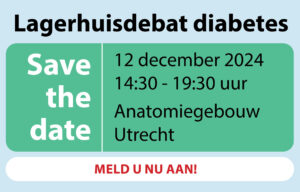Disturbed eating behavior (DEB) is prevalent in youth with type 1 diabetes and is accompanied by an increased risk for complications, morbidity, and mortality. Prospective studies on DEB in the challenging transition to adulthood are scarce. This longitudinal study examined DEB over a 1-year period and investigated the directionality of effects linking DEB to diabetes-specific functioning and depressive symptoms in adolescents and emerging adults.
Three hundred youth (16–28 years old) with type 1 diabetes participated in a two-wave longitudinal study. Questionnaires measured DEB (Diabetes Eating Problem Survey-Revised [DEPS-R]), self-management, diabetes distress, and depressive symptoms. HbA1c values were obtained from physicians. Mixed ANOVA and cross-lagged analysis were used to examine prospective changes and directionality of effects, respectively.
Mean DEB remained stable in the total sample, but significant individual differences were observed based on the cutoff score of the DEPS-R: 19% displayed persistent DEB and 8% increased and 7.3% decreased in DEB over time. The remaining individuals scored low on DEB over time. These four groups were differentiated based on insulin restriction, omission, diabetes-specific functioning, and depressive symptoms. Cross-lagged analyses indicated that DEB predicted relative increases in depressive symptoms over time, whereas reciprocal associations with glycemic control were found.
This longitudinal study highlights the substantial impact DEB may have in the transition to adulthood, with a substantial portion of youth with type 1 diabetes being at risk for clinical DEB. Prospective pathways linking DEB to functioning were found, emphasizing the clinical relevance of assessing DEB over time.


